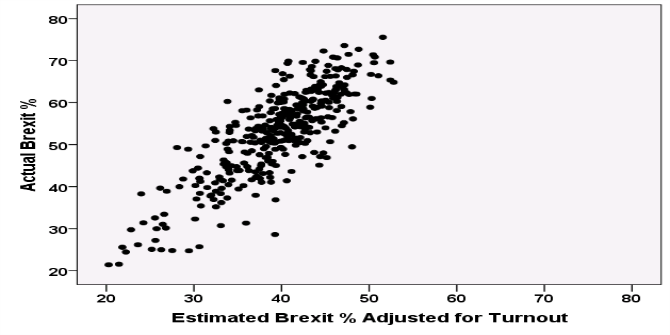The sale of Royal Mail at a heavy discount has highlighted the increasing clout of the financial sector. At least five of the investment banks that served as advisers to the government were also allocated shares on behalf of their asset management divisions for distribution to clients. Meanwhile, Royal Mail is cutting jobs and increasing prices above and beyond what might be reasonable to ensure the sustainability of the postal service. These are now being done to raise profits for the private owners, writes Kate Bayliss.

This week we learned from a Report by the National Audit Office (NAO) that Royal Mail (RM) was sold off at a discount. The big winner is the financial sector. It has now become commonplace for financial capital to be involved in – and profit from – many aspects of economic and social life, as non-financial sectors become financialised. Even some English water companies are owned by private equity funds based offshore, channelling funds through the Cayman Islands.
The significance of the financial sector has become elevated in recent years, not just in the proportion of GDP that it generates but the way in which it is hailed as the fount of wisdom for shaping policy. The Government appointed a syndicate of seven investment banks to advise on the privatisation of RM, and UBS and Goldman Sachs were appointed as the joint global coordinators. Lazard & Co, a firm with reportedly close connections to the government, was appointed as exclusive independent corporate finance adviser.
Many have criticised the sale on the grounds that the price at which 60% of the shares were sold last October was too low. The IPO was 24 times oversubscribed. On the first day of trading, RM’s shares closed at 455 pence, 38% higher than the opening sale price of 330 pence. The share price increased by 72% over the first five months of trading.
Valuing RM is tricky. Arguably, in uncertain circumstances, a low price may have been required to ensure sufficient take up of shares, if that was the objective. However, these advisers also bought shares in RM. At least five of the syndicate investment banks were allocated shares on behalf of their asset management divisions for distribution to clients. These firms then gained from subsequent trading in stocks and the rapid appreciation of the share price (albeit, shares which they held for clients). Goldman Sachs was reported to have sold 4.5 million stocks between 31 October and 11 November 2013, when the RM shares hit their highest which would equate to profit of £12m if the stocks were sold at their peak. This is on top of the £12.7m paid to the syndicate from advising on the sale.
Even with the firewall between the separate divisions of the investment banks, their priorities are clear and there is an obvious conflict of interests. The problem, according to the NAO (p.16), is that there is only a small pool of expertise in this field. To exclude potential advisers that are linked to asset managers “would have constrained the choice of advisers available to it.” State capture by the financial sector is not uncommon. A recent investigation by the House of Commons Committee of Public Accounts highlighted the way that the big accountancy firms advise government on tax policy and then are in a strong position to advise clients as to how to pay less tax. Finance has become so dense that only those that are in it can advise us as to how to manage it. It seems that there is no option other than to put the fox in charge of the hen house.
RM is now largely in the hands of wealthy financial interests, intent on revenue extraction and for whom a stake in RM is a tiny cog in an extensive financial portfolio. Owners with more than a 5% stake include hedge fund TCI, the government of Singapore via sovereign wealth fund, and the GIC (which also has a stake in Yorkshire Water). In addition the new owners include the likes of UBS (Luxembourg) and SA which owns shares on behalf of anonymous clients. Shareholders are hidden behind nominee accounts.
Unfortunately the story does not end with the sale. RM is cutting jobs and increasing prices – both of which might be reasonable measures to ensure the sustainability of the postal service. But now these are being done to raise profits for the private owners. The latest job cuts are expected to deliver cost savings of around £25m in 2014-15. This will add to the wealth of the largely unknown owners, as will the gains from selling the prime London property owned by RM.
It cannot be any wonder that inequality is increasing when the hegemony of finance tramples over all other aspects of social and economic life. There was no need to privatise RM. Many countries run their national postal services via state owned companies (e.g. France, Ireland, USA). Even Belgium’s bpost, which is cited as the model for the UK, is majority state-owned. Arguments of efficiency gains from privatisation are questionable, and are overwhelmed by the inefficiency emerging from the inequitable distributional outcomes.
Note: This article gives the views of the author, and not the position of the British Politics and Policy blog, nor of the London School of Economics. Please read our comments policy before posting.
About the Author
 Dr Kate Bayliss is affiliated with SOAS, University of London and has been working on public sector reform for over a decade with particular focus on privatisation of water and electricity. She has worked as a consultant for international agencies and NGOs.
Dr Kate Bayliss is affiliated with SOAS, University of London and has been working on public sector reform for over a decade with particular focus on privatisation of water and electricity. She has worked as a consultant for international agencies and NGOs.








The UK public did not want the Royal Mail privatised, the workers of Royal Mail did not want Royal Mail privatised, the Government was determined to sell off this profit making company despite this. If you look at the past performance of Royal Mail it was usually in profit, it took 15 years of Pension Holiday because it’s Pension Fund was so much in surplus and then Gordon Browns Pension grab to wreck a once very profitable company. The best thing that can happen is for it to be re nationalised.
No doubt lessons will be learned, just as they were when the gas the electric the railways and the water were sold off cheap and Tory supporters made huge profits so that the same mistake wouldn’t be made again.